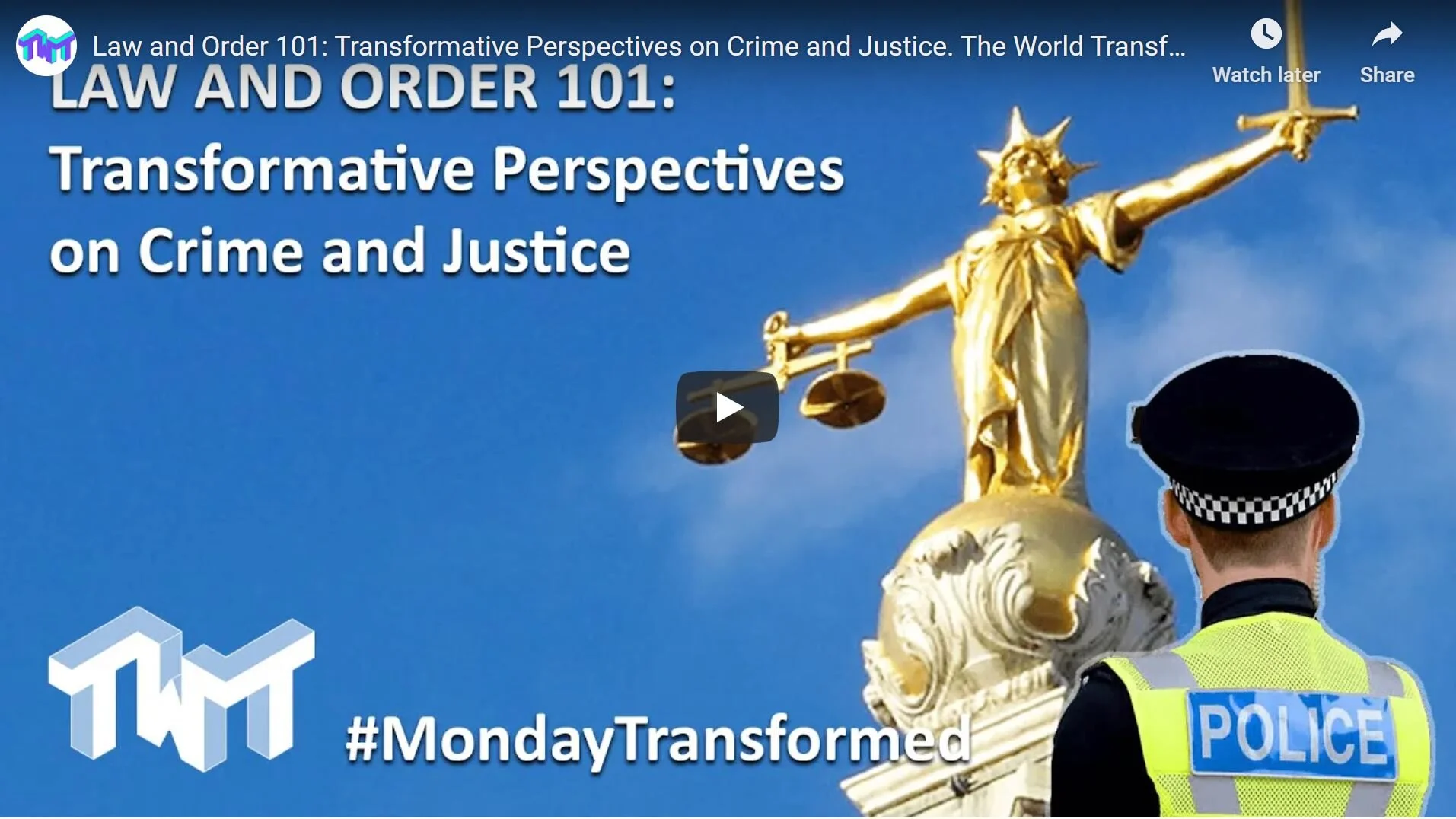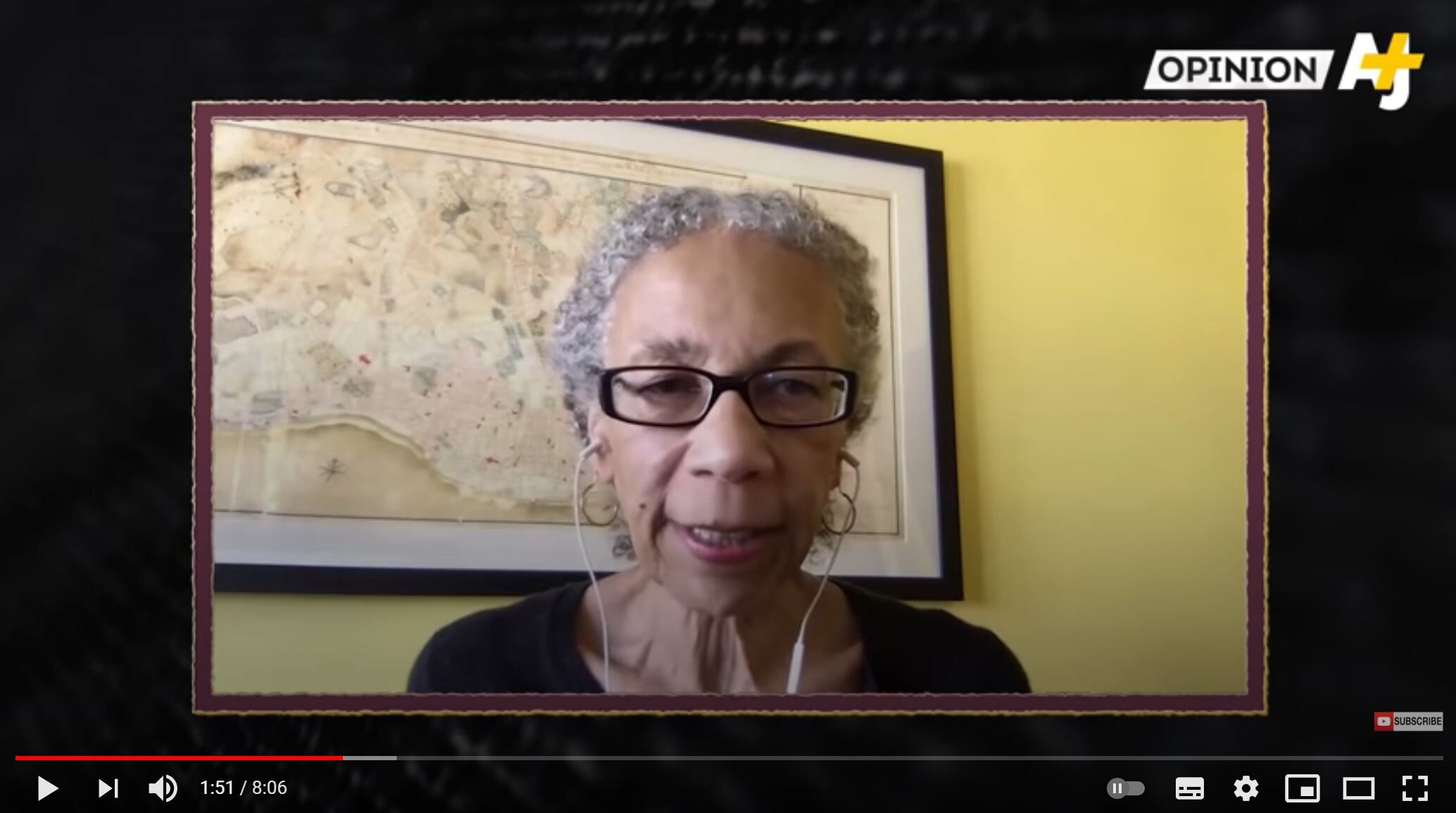Resources
This page helps you to navigate the resources we have collated for abolitionist learning and organising.
If you are new to abolition we suggest starting with our reading list or browsing the ‘Introduction to abolition’ resources below.
To search through the resources, you can go to our blog page and use the search function.
Introduction to Abolition
These resources are here to help those new to abolition get to grips with the key ideas. Use the arrows on the right to find more.
On June 15th - 18th 2018, activists from around the world gathered in London for Abolitionist Futures: this year's International Conference on Penal Abolition. Over the weekend, there were over 100 presentations and workshops with contributions from 18 countries, bringing activists and community organisers together to plan for a future where prisons, policing and punishment are no longer used.
Writing for Amaliah, Hejera Begum outlines 3 abolitionist reforms for the UK: Banning police being posted in schools, ending stop and search, and abolishing Prevent.
Campaign Against Prison Expansion put on this excellent panel discussion on prison abolition in the UK.
The World Transformed hosted this excellent panel discussion on police, prisons and immigration enforcement with contributions from Blair Buchanan, Luke Hayes, Dr Tanzil Chowdhury, Rosalind Comyn, Rebecca Roberts, Divya Sundaram and Dr Patrick Williams.
In this video, Professor Ruth Wilson Gilmore examines what a society without prisons looks like. She examines the connections between slavery, racial capitalism and the prison industrial complex.
Abolition in the UK
Prison abolition is often seen as a US concept, however there is an established UK abolitionist movement. Here are some resources to help think about UK abolitionism.
This chart breaks down the difference between reformist reforms which expand the scope of policing, and abolitionist steps that reduce the scale of policing and its detremental impact. It is a UK-relevant resource adapted from a poster created by Critical Resistance in the US.
Campaigning against prisons and the police and attempting to build a just world, free of domination and an economy based on mutual cooperation are not new. Here is an overview of the long history of organisations and individuals in the UK working towards these goals, even if all were not explicitly abolitionist.
Opening Roundtable of the Abolitionist Futures Conference in 2018 with Beth Richie, Ruth Wilson Gilmore and Deborah Coles. Friday 15 June 2018
Sara Chitseko of 4Front writes that body cameras, community policing and police training are not adequate responses to police violence in the UK
Tom Kemp and Koshka Duff discuss what calls to ‘defund the police’ look could look like in the UK.
Abolishing Prisons
Abolitionists reject the common-place assumption that prisons are a necessary part of a just society. Here are some resources for understanding abolitionist arguments against mass incarceration.
We take prisons, or jails, for granted - but how effective are they? And are there better alternatives? In this video, Dr David Scott, explores what a world without prisons might be like.
Writing for 4Front, Sara Chitseko argues that prisons fail to tackle the causes of social problems.
Prisoner Solidarity Network’s John Bowden tours Britain’s Prisons: HMP Brixton, HMP Pentonville and HMP Wandsworth.
Sarah Lamble argues about the need to create stronger connections between struggles for gender and sexual justice and movements against mass incarceration
Abolishing the Police
Here are some resources with abolitionist arguments against the police, guides for what to do instead of calling the police, and imagining abolitionist infrastructure for real public safety.
This chart breaks down the difference between reformist reforms which expand the scope of policing, and abolitionist steps that reduce the scale of policing and its detremental impact. It is a UK-relevant resource adapted from a poster created by Critical Resistance in the US.
These posters can help us think about what safety is and to imagine the infrastructure we need to keep safe. They were designed by Amber Hughson @conflicttransformation
By thinking about why you feel the need to contact the police, developing your own skills around conflict resolution and educating yourself on what alternatives are available, you can minimise police interference in your area and avoid further endangering those who might be put at physical risk by their presence.
Dr. Adam Elliott-Cooper and Adam Pugh talk to Vice to give their ideas on what defunding the police would look like in the UK.
















